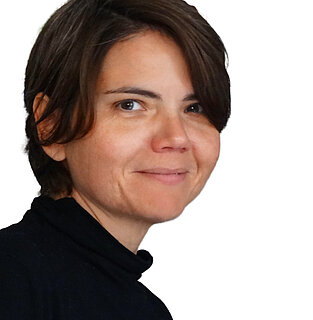Ana Guimarães Duarte

What excites you about adult learning and education?
"The possibility to change lives and empower people."
Why did you choose to do research in the field of adult learning and education?
"To contribute to adult education research development concerning our informal learning in everyday life."
Ana Guimarães Duarte is a PhD student at Adult Education at Institute of Education, University of Lisbon. She has worked as project manager and adult educator in vocational and community education.
Ana Guimaraes Duartes current research interests include:
- experiential learning
- learning trajectories of migrant women
- vocational education
- IVET STEM courses and gender
- school-to-work transitions
CG8: Adult Education policies and gender equality: women in STEM education
Co-Moderator: Prof. Natália Alves
Debates about and incentives for gender equality in the labour market and female representation in areas called STEM - an acronym for “science, technology, engineering, and mathematics” (UNESCO, 2017; Chavatzia, 2017) have proven to be a relevant agenda for the empowerment of women and the development of contemporary societies (Dockery & Bawa, 2018).
Several studies have focused on the relationships between gender, STEM areas, education, and the labour market demonstrating the challenges that women face to develop (and keep) careers in these areas, which are strongly dominated by men around the globe (Charles & Thébaud, 2018).
Considering the scenario presented, it is important to identify, analyse and compare the national educational policies, initiatives and programmes that promote the participation of women in STEM professions on an equal basis with men.
Given the lack of consensus on the STEM professions and courses, it is necessary to choose a framework to guide this research. In this CG, we use the UNESCO definition (UNESCO, 2017, pp. 33-34).
Based on a document analysis of the national policies, initiatives and/or strategies targeted at increasing women’s participation in STEM education, we expect the students could:
- compare policies and/or initiatives to women’s access to STEM education.
- compare the national mechanisms of support for women to keep studying in STEM courses (e.g. scholarships, loans, etc.)
Duarte, A. G. (2020). Experiential learning of Brazilian women in Portugal and Peter Jarvis’ diagram of the transformation of the person through learning. In Merrill, B., Vieira, C., Galimberti, A., Nizinska, A. (Eds). Adult education as a resource for resistance and transformation: Voices, learning experiences, identities of student and adult educators. Coimbra: University of Coimbra/ University of Algarve/ ESREA. URL: http://esrea.org/wp-content/uploads/2021/08/ESREA-Book-2020-Complete-Filecover.pdf
Duarte, A.G. (2022). PROCESSOS MIGRATÓRIOS E FORMAÇÃO: APRENDIZAGENS EXPERIENCIAIS DAS MULHERES BRASILEIRAS EM PORTUGAL (Tese 55). Alto Comissariado para as Migrações. URL: https://www.om.acm.gov.pt/documents/58428/179891/Resumo+Tese+55.pdf/3f855fb7-7482-4e1a-a583-2b88c62569db


